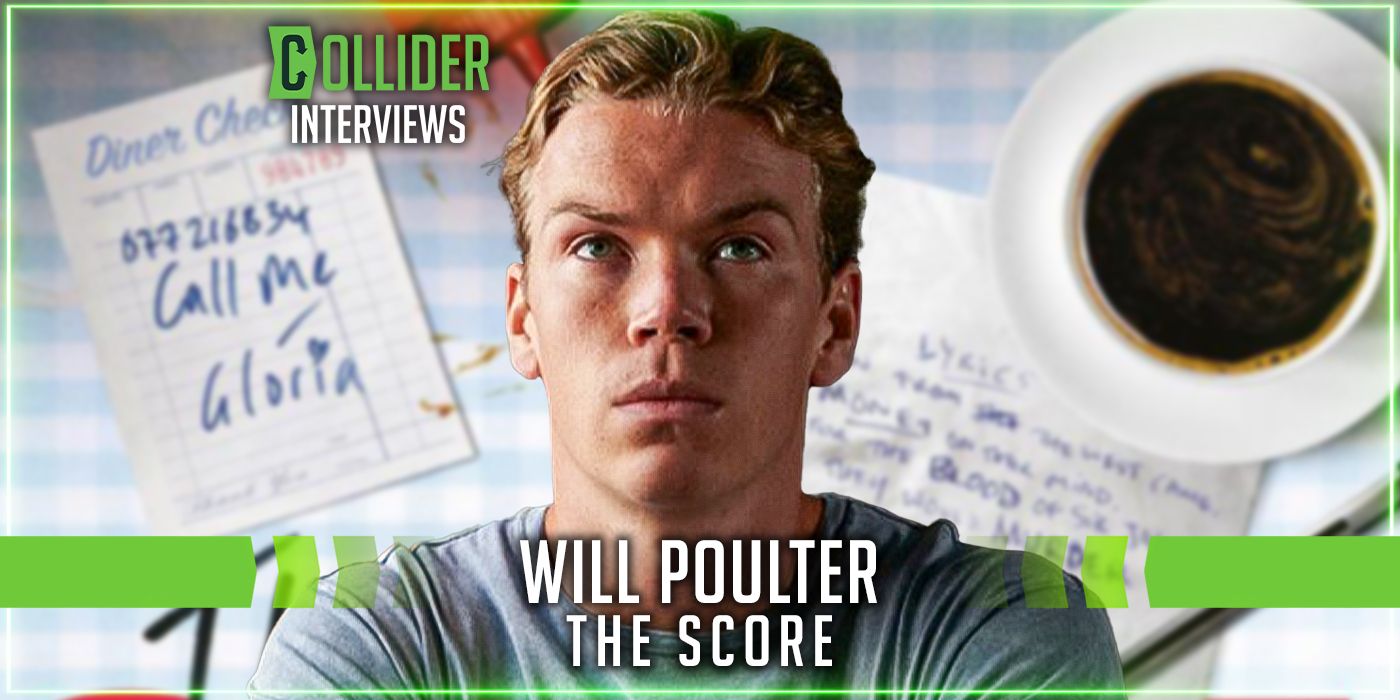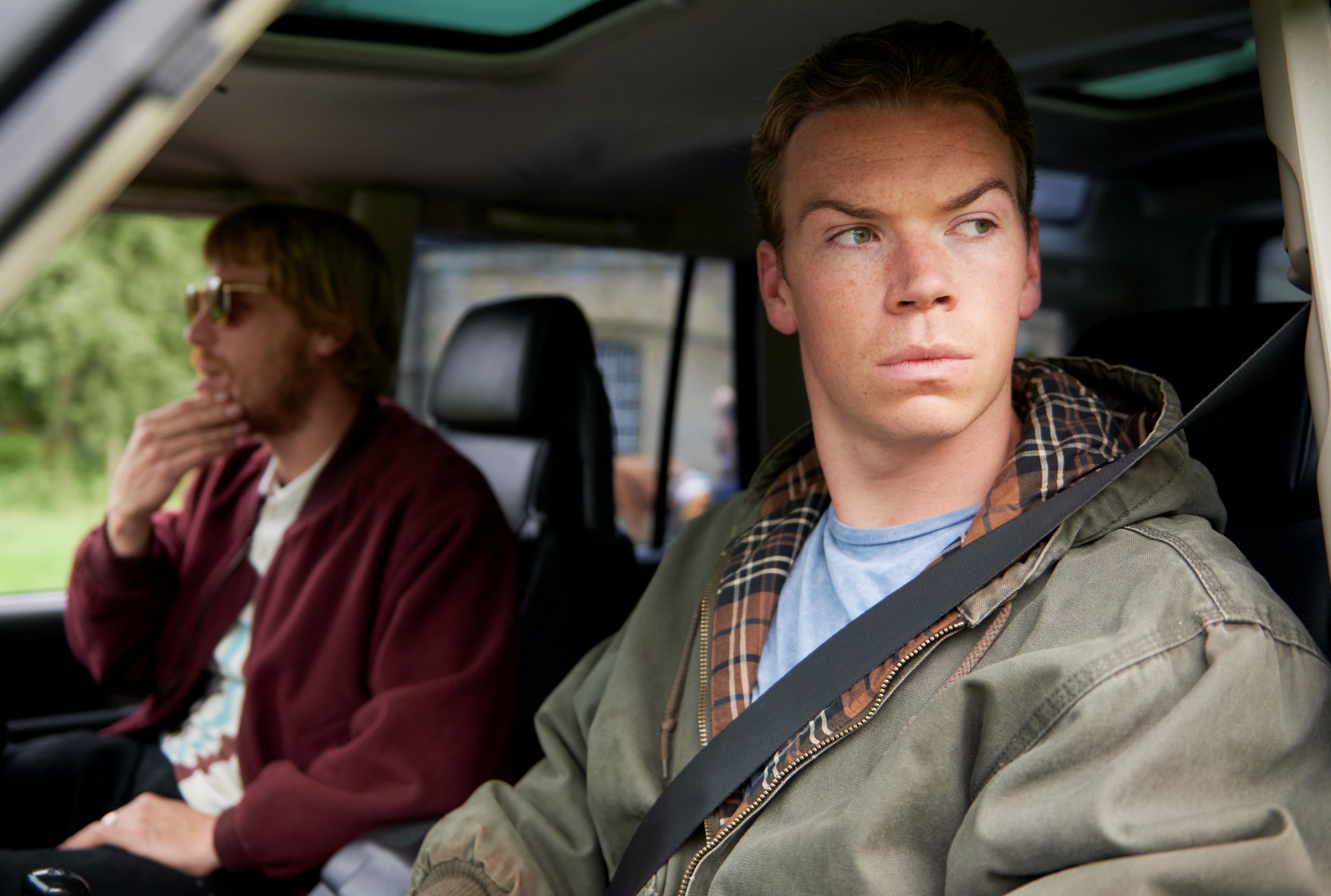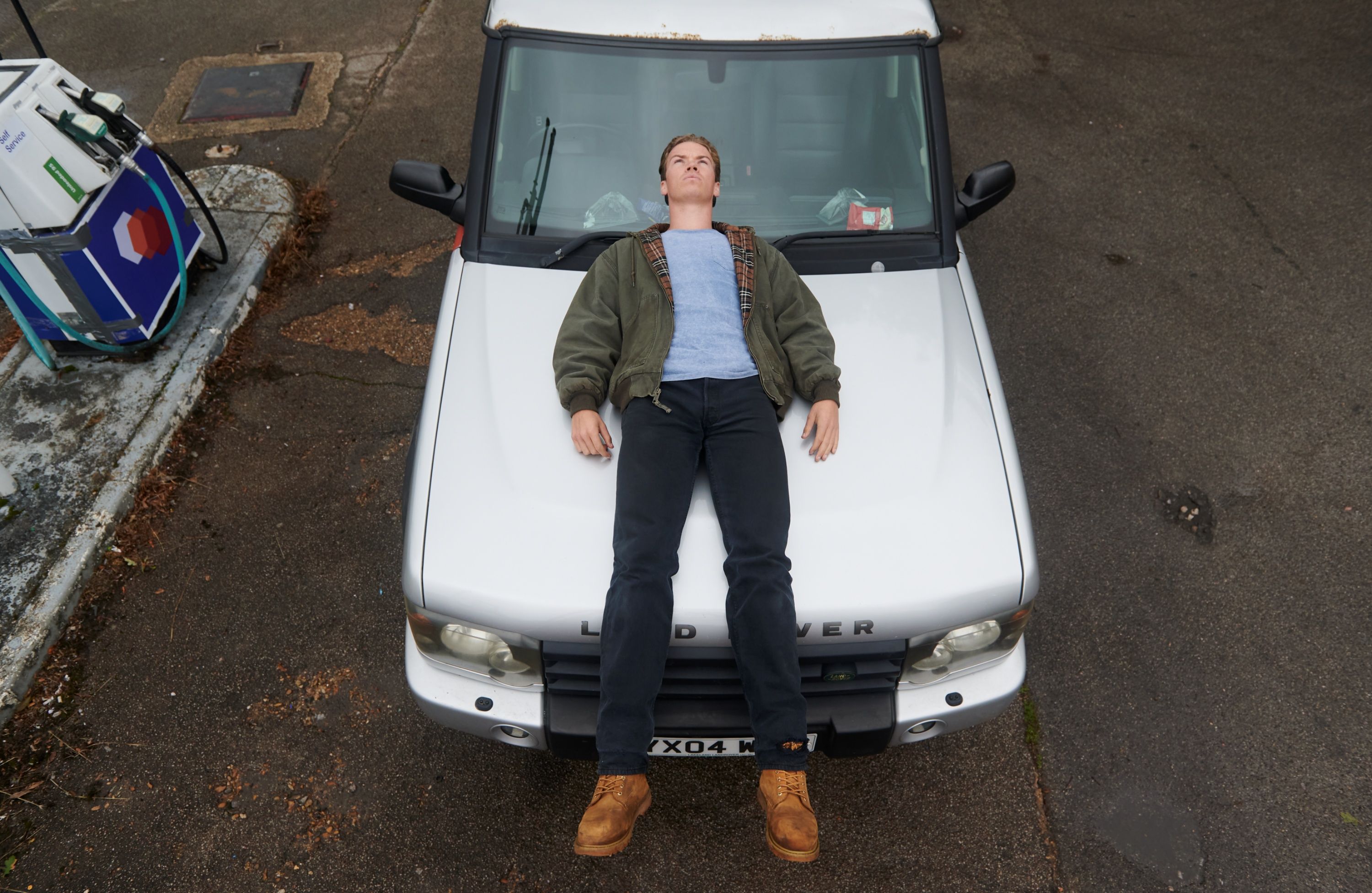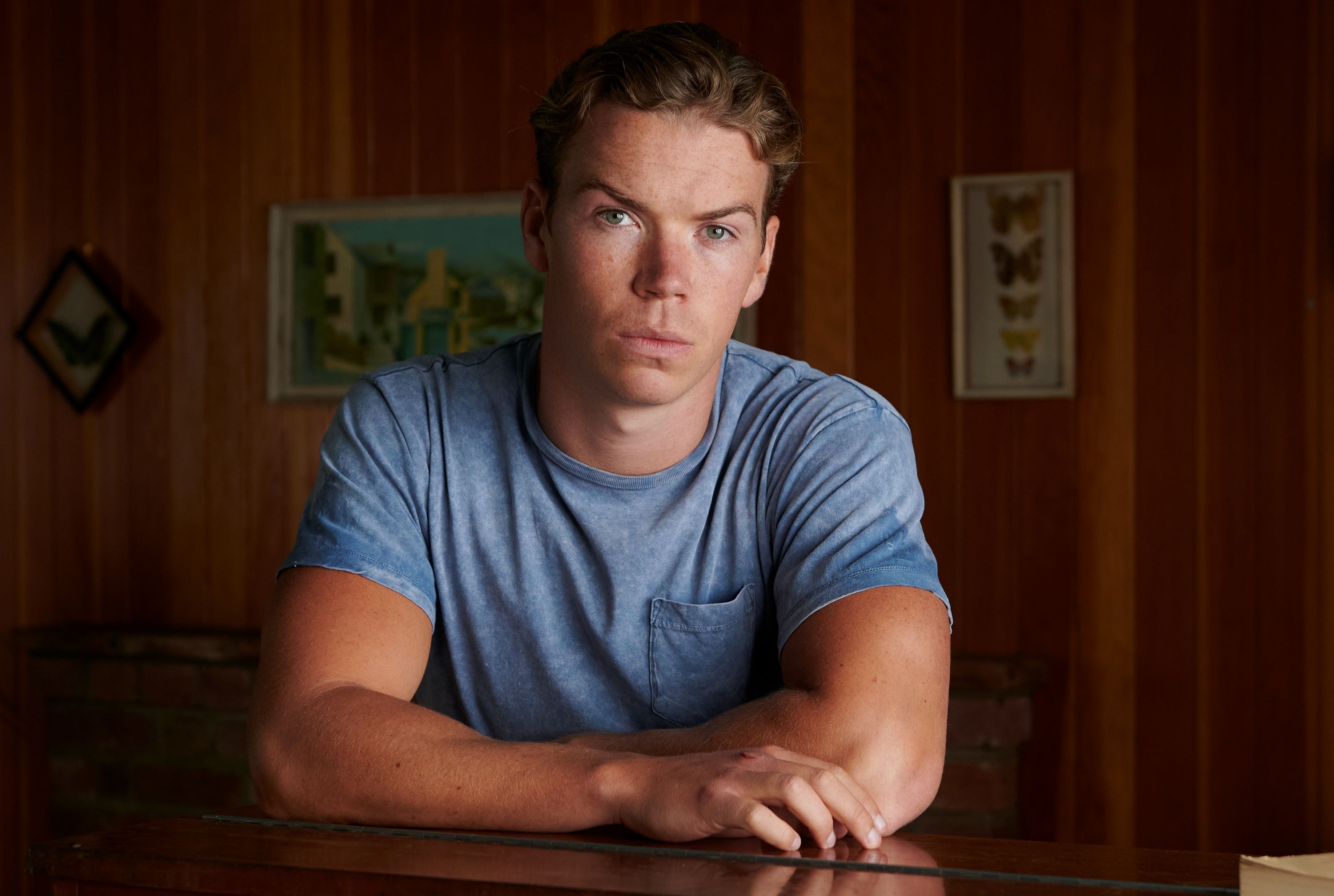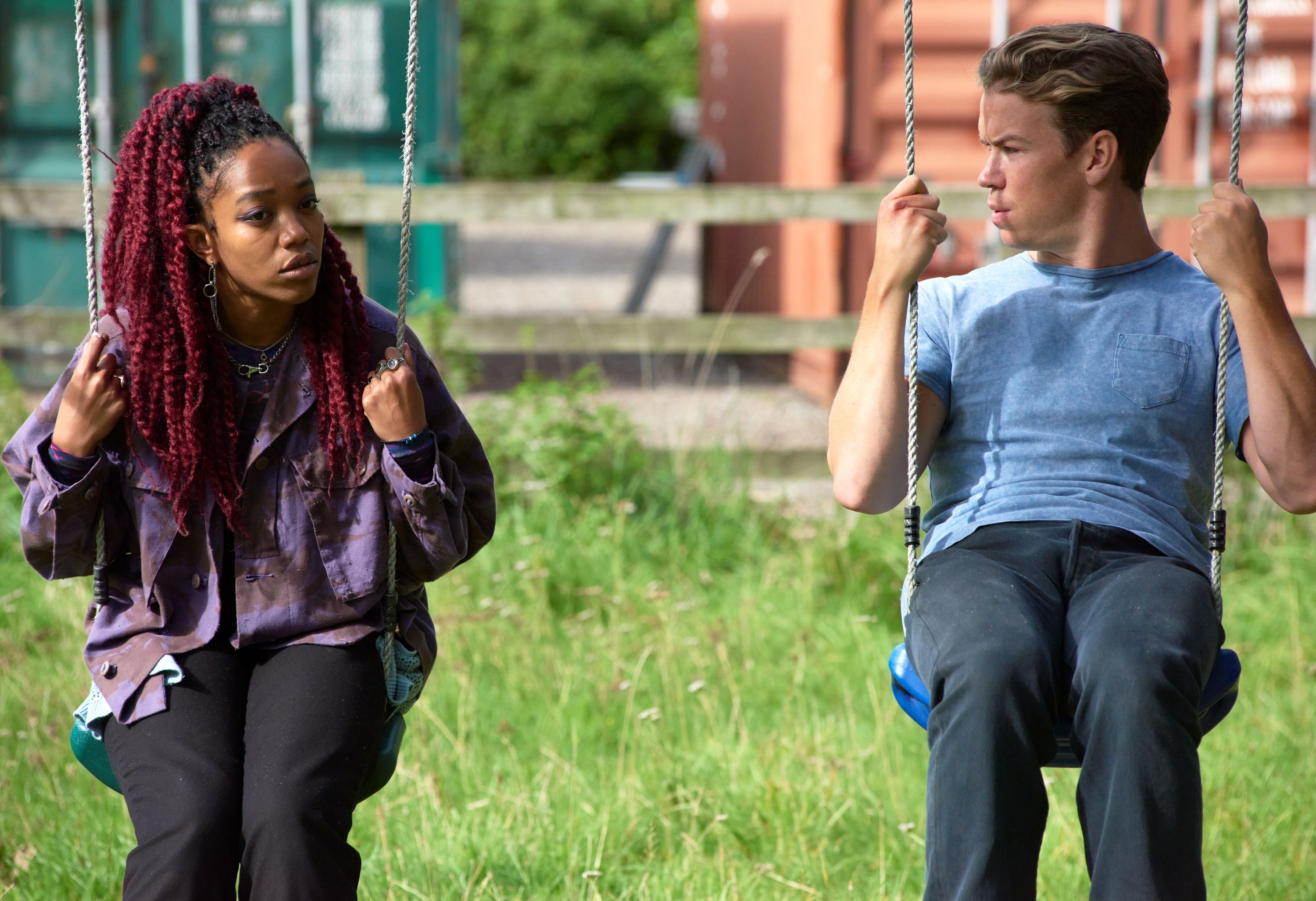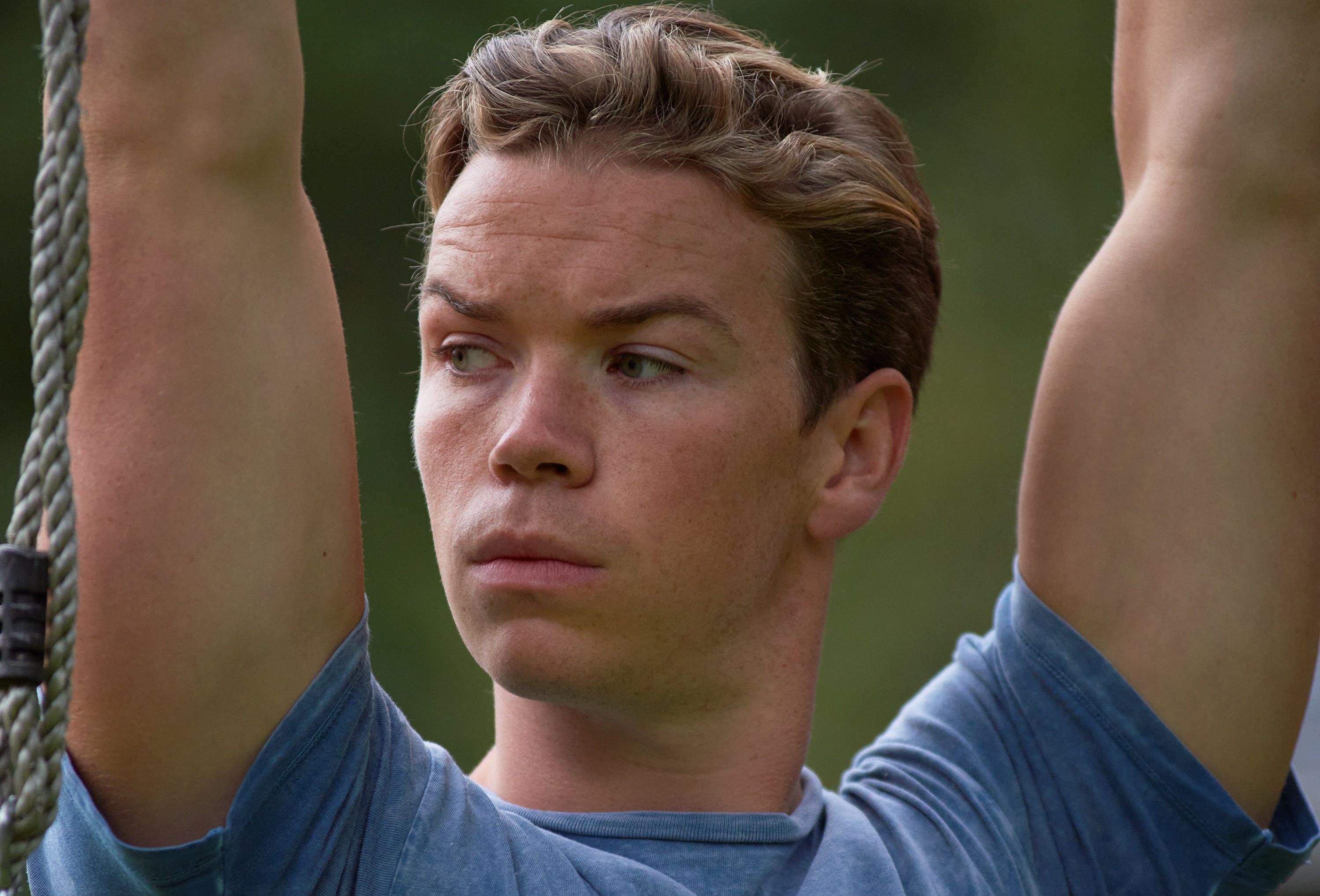In the romantic crime drama The Score, which also happens to be a musical, small-time crooks Mike (Johnny Flynn) and Troy (Will Poulter) think that a recent money score will help them get out of their current circumstances. But while the two men kill time at a café, Troy becomes interested in the waitress, Gloria (Naomi Ackie), and feels that maybe it’s time for him to change his own life plan.
During this 1-on-1 interview with Collider, Poulter talked about why he found this unique project so appealing, the great time he had making a heist musical, how the encyclopedic knowledge that first-time writer/director Malachi Smyth had really helped enhance the experience of making the film, representing the story through the songs of Flynn, finding the right balance in the tone, and how he felt about the ending. He also talked about joining Guardians of the Galaxy Vol. 3 as Adam Warlock, and how excited he is to see how James Gunn brings all the elements of that film together.
Collider: This is not the type of story that we’re typically used to seeing as a musical. When you read this script, did you fully grasp what it was going for? Did you get what this was going to be, or did you have a lot of questions? What was it like to experience on the page?
WILL POULTER: It was so much fun to experience on the page, and I was blown away by just how unique it was. I really loved the fact that it couldn’t be easily defined, as any one thing. It’s this relationship drama. It’s this thriller. It’s simultaneously a musical. It’s also a comedy. It’s so many things, tightly rolled up into one, and I just had a blast reading it. I felt strongly that, if we got it right, people would have a blast watching it too. That was the thinking behind it involving myself.
Do you feel like this will be the one and only heist musical and that you’ll get to be one of a kind in that, or are you hoping it could kick off a whole genre of other unusual musical projects?
POULTER: I wonder. That’s a funny thought. I wonder if (writer/director) Malachi [Smyth]’s got any more heist musicals up his sleeve. If he does, I’d be happy to be involved.
It feels like you could turn any genre into a musical, and it could be very strange and wonderful and glorious.
POULTER: I think it was the strangeness and the quirkiness of this that really grabbed me and really meant that it stood out. And obviously, to know that Naomi Ackie and Johnny Flynn were involved, it made it a no-brainer to wanna be in this.
Did the director give you any reference points for what the vision for all of this was, or was it just really clear in the script?
POULTER: Malachi has an encyclopedic knowledge of film. He’s a real connoisseur of film, and he had a million different references and visual references for every scene that we were in, which was so cool. He would regularly show Naomi and I clips of films from 60, 70 years ago that he’d seen, that he really loved, that maybe captured the spirit of what he was looking for in a scene. He would show us a frame from a foreign film that he really particularly liked and that he was trying to emulate in a given moment. Just working with someone who’s so much of a cinephile and so passionate about what they do was really cool. Malachi’s a first time director, but he had the knowledge of someone who’d been in the business for 50 years. It was pretty amazing.
It feels like it takes a lot of balls to do something like this at all, let alone as your first film.
POULTER: It’s a very gutsy debut, especially when you try and pitch this thing. I was struggling to pitch it and explain to people where I was going to work every day. I was like, “Well I’m doing this musical, thriller, heist comedy thing that’s also a romance.” I just had so much fun. It was hard work, but every day was a blast. We really enjoyed ourselves out there, in the English countryside.
It sounds like you were definitely game for the oddity of it all, but was there anything you were nervous about? Was there anything you thought might be a big challenge, whether it ended up being one or not?
POULTER: Given the limited time we had to shoot it, I was nervous about executing all the musical elements. They were quite time-consuming to shoot and they were not easy to pull off. Johnny Flynn scored The Score, and he consulted and was almost co-director of those moments. Me and Naomi felt in pretty safe hands. When it came to Johnny’s solo and he sings his solo in the film, it’s mesmerizing. It’s a little bit like, “Ah, okay, that’s how it should be done.”
What was it like to do the songs? When you sang TLC’s “Waterfalls” in We’re the Millers, did that help prepare you for singing in a film? What was it like to do that part of it?
POULTER: It was really interesting process. We had a couple of days in a studio during pre-production to pre-record the songs. Then, we would record live takes and take the best of both, in order to compose the final edit of the performance. It was so much fun, getting in a studio and working on the songs and recording for a couple of days, pretending to be a professional musician, even though I am far from it. Me and Naomi had a great time. It was a really great bonding experience for us, to just stand shoulder to shoulder and sing with one another. We had a blast.
How was the experience of representing the story through these songs?
POULTER: The lyrics were a really great guide for the emotional journey of the characters, so much so that sometimes we would refer back to the lyrics of the song within a scene. If we arrived at a crossroads and didn’t quite know where to go, we’d refer back to Johnny’s music. It is interesting how once you’re in the situation and you’re opposite each other, in costume and in the moment, maybe some of the choices you made during the pre-recording, you’d like to slightly alter. We were afforded that opportunity and we were able to make slight tweaks. Part of the challenge was projecting into the future, as to how you might wanna deliver it.
Are you someone who likes watching the work that you do? Is that even harder to do, when you’re also singing? How do you feel about that?
POULTER: Yeah, it’s hard enough watching myself act. It’s virtually impossible watching myself sing and act. I don’t enjoy that. But I love watching Naomi and Johnny and everyone else in our cast. I loved watching The Score, I just didn’t particularly enjoy watching myself in it.
With his songs in the film, obviously Johnny Flynn had to do one of the roles, and it sounds like your love interest, with Naomi Ackie, was already cast. What is it like to come in as the last piece of the puzzle? When a project is far enough along that you have the script, you have the songs and you know the cast, does that make it an easier choice for you? Is it a different thought process, when you’re considering something that’s in much earlier stages and might not even have a full script yet?
POULTER: For sure, yeah. It really is. Once you see that Naomi Ackie and Johnny Flynn are two parts of said puzzle, you feel like you’ve won the lottery when you’re being offered to join that cast. I was a genuine fan of both of them. I’d seen Naomi’s work in End of the Fucking World, and I’d been a fan of Johnny’s from things like Beast. So, the chance to work with them in this capacity was really a no-brainer. I didn’t hesitate much over signing on.
This seems like it would have been a tricky project to pull off, as far as the tone, because it’s grounded and realistic, but it’s also heightened, and it has this dream-like musical quality to it that makes it feel a bit like a fairy tale. What was that like to always find the right balance for? Was that something that you talked about a lot, to figure out?
POULTER: Yeah, we did. We had a lot of table time, discussing how we wanted the film to unfurl and how we wanted the music to be integrated. I don’t wanna say supernatural, but fairy tale, as you put it, is actually a really good way of saying that it has this fairy tale and dreamlike quality to those moments with the songs. As Johnny put it, it’s an extension of your aspirational self. The songs were an articulation of your wildest ambitions and your hopes and dreams, that would otherwise just stay within. To see characters trapped in their various scenarios, have that outlet of song, was really cool for me.
It’s also an unusual and quite unconventional love story. What did you most enjoy about exploring that relationship, between your character and Gloria, and finding that dynamic through scenes and through songs?
POULTER: It’s funny, this almost instantaneous romance that develops between them. It’s so traditional, in the sense that it’s so romantic, but it’s so anti-traditional, given the context. The job that Troy is there to do and the job that Gloria is there to do couldn’t be further from each other on a spectrum. The fact that the undeniable connection that they have and the love they have for each other brings them together and forces them in an entirely new direction that I don’t think either of them ever planned for, even though they both hoped for it, was just a really cool outcome, and something that Naomi and I agreed on, as being a really fun element and another very unique element of the film.
In the scene at the gas station, when you slide across the hood of the car, was that a hidden talent that you have, or was that something you had to do a bunch of takes for because you kept sliding off the end?
POULTER: For sure, yeah, there were a bunch of takes that I messed up. I was just very scared about scratching the car. That thing was a lot higher than I had in my mind’s eye. That gas station scene was super fun, particularly the fight choreographed to the music. We had a blast doing that. I love the comical quirks and the offbeat moments. I think that those are what helped make the film what it is.
Somehow in all of this, you still manage to have a shootout, which is a long sequence. What was that like to shoot? How was that to do and to figure out all the staging for?
POULTER: It was complicated, especially with the split screen element. It was super ambitious, and I really take my hat off to Malachi, our director, for attempting that with his first film. That’s something that’s really hard to do, but also really fun. It infuses the story with a lot of energy, in that final moment. There was a sense that these characters were all very cooped up in the car, in the gas station and in the café, and that’s a moment of release. Hopefully, by that point, the audience is along with us, at that stage of the journey.
How did you feel about the ending of the film and for your character? What was your reaction to that? Was that ending always the ending, or did that change at all?
POULTER: I’m pretty sure that was always the ending. We toyed around with a couple of different alts. I think I had a more optimistic read on the ending than maybe some other people, but I like the fact that it’s open to interpretation. “Hard Road,” which is the song that the film ends on, is probably my favorite of the whole picture, so I’m glad we ended on that.
You’ve also joined the Marvel Cinematic Universe with Guardians of the Galaxy Vol. 3, and the MCU has gotten so big and so far-reaching that it feels like eventually a character in the universe has to come your way, if you’re an actor. Are you surprised that it’s this character, or did this character just feel particularly suited or appealing to you?
POULTER: I’ve gotta say, I never banked on being involved, in any capacity, really, but I’m certainly very grateful. I’m especially grateful that my introduction has taken place in the world of the Guardians, specifically. It’s a franchise that I’m a particularly big fan of, and I couldn’t ask for a nicer, more fun introduction, really, into the Marvel universe.
When an opportunity like that comes your way, do you have to consider it a bit more, knowing that you likely have to sign a contract to possibly play the character many times, over a few years?
POULTER: Sure. Yeah, you do have to entertain that possibility. The truth is, I don’t actually know what the future holds for me, regarding the character. Certainly, it comes with a certain level of commitment that requires consideration, but obviously, I’m very grateful to have been given the role.
You’ve had such an interesting career that’s all over the map, with bigger films and more independent films and spanning such a variety of genres. Is there anything that guides the projects that you do? Is it just about finding something different from the last thing, or do you look for anything specific?
POULTER: I think variety certainly makes it interesting for me and I hope interesting for audience members too, but it’s the quality of the material, more than anything else. I let the script guide me. I don’t tend to allow genre, or size, or medium, or anything like that, to dictate my choices, wherever possible. In the case of projects like Dopesick, for example, I’m afforded an opportunity to contribute to a conversation around sociopolitical change and raising awareness of a public issue, which is something that I feel passionate about. The subject of addiction is something that I wanted to educate myself on. I think the issue of vilifying addicts and people who suffer with addiction, and raising awareness around the injustices that have affected people suffering from opioid addiction, in particular, anytime I’m able to have my work, as an actor, intersect with those interests, is very fortunate.
When you’re reading a script, do you know, within the first few pages, if it’s something you connect with and want to do? Are you somebody who still reads to the end, just to make sure?
POULTER: I think I know relatively soon. I read most everything, right up until the end, but I think I get a pretty good instinct, fairly quickly. The Score was something that I just breezed through. When I read something quickly, it’s a good sign because I’m just so looking forward to turning the next page, and that was exactly my experience with The Score. It’s one of the funnest reads I’ve ever experienced.
Do you know what you’re doing next? Are you currently trying to figure that out?
POULTER: I actually literally wrapped Guardians only a couple of days ago (this interview was conducted on May 11, 2022) and got home on Sunday. I’m quite looking forward to taking a bit of a break, if I can. I’m delighted to be able to promote The Score, and now just take a bit of a break from filming.
Is Guardians something where you feel like you have a sense of what the movie is, or do you feel like you are going to be surprised when you actually see how it comes together?
POULTER: I think I’m gonna be surprised just because there’s so many elements in the equation, a lot of which obviously relate to visual effects and things that you can’t see in the moment of shooting it. But I think (director) James Gunn is such a visionary, and he seems to just have endless creativity in his bones. I’m just so excited to see how he takes what we shot and translates it to the screen, with all the other elements that are to come. There’s such a talented visual effects team, as well, attached to it, so I think I’m in for a lot of surprises when I see it.
The Score is in theaters on June 3rd and on VOD on June 10th.

